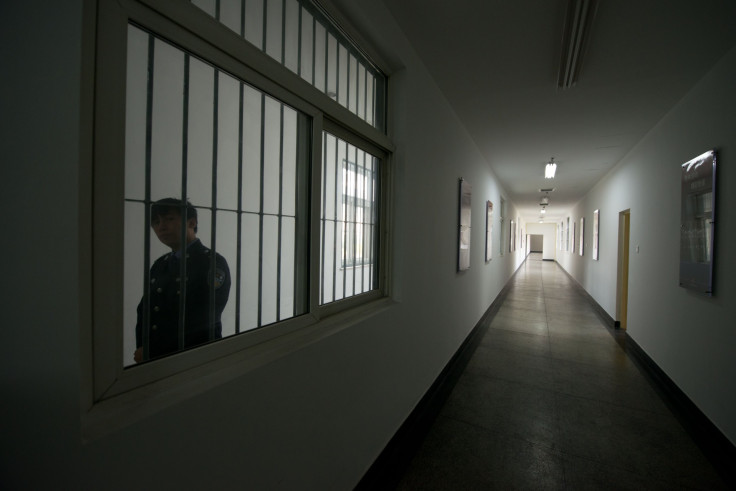Amnesty Report Highlights 'The Scourge Of Torture' In China's 'Black Jails'

In 2013, 1.16 million people were put on trial in China, of which all but 825 were found guilty -- a staggering 99.9 percent conviction rate. The massive conviction rate was achieved, at least partly, because of Chinese police’s reliance on “compulsory measures,” which, in practice, allow a variety of coercive tactics to be employed against suspects.
According to a new report from Amnesty International, these practices are still widely being employed across the country to extract forced “confessions.” Moreover, lawyers who attempt to expose allegations of torture by police are themselves detained and tortured, the human rights group alleged. China has witnessed a far-reaching anti-corruption campaign led by President Xi Jinping whose critics have accused him of using the exercise to target political rivals.
“Papering over a justice system that is not independent, where the police remain all-powerful and where there is no recourse when the rights of the defendants are trampled upon will do little to curb the scourge of torture and ill-treatment in China,” Patrick Poon, China researcher at Amnesty, said, in a statement released Thursday. “In a system where even lawyers can end up being tortured by the police, what hope can ordinary defendants have?”
The report, titled “No End in Sight,” is based on interviews of 37 practicing lawyers across the country, including in Beijing. In it, Amnesty details torture and ill-treatment of suspects in pre-trial detention, including beatings by police or by other detainees with the officers’ knowledge.
The report cites the example of a 52-year-old human rights lawyer Cai Ying -- detained in 2012 on charges of bribery, perjury and fraud. In the report, Cai said that during his detention, he was forced to undergo questioning while being forced to sit on a “diaodiaoyi” -- a hanging restraint chair where the feet of the person cannot touch the ground, the person’s back cannot lean on the back of the chair, the chest is tied to a board and the hands are cuffed to the board.
“I was forced to sit on the diaodiaoyi for at least 12 hours every day, sometimes one or two full days and the longest time was five full days,” Cai, who recently recalled the torture sessions in an interview with the South China Morning Post, told Amnesty.
And, according to the rights group, Cai’s case is not the exception. Of the attorneys interviewed by Amnesty, 10 said they had personally suffered “torture or other ill-treatment” at the hands of the state, while, among other things, investigating alleged torture at a secret detention facility -- known as a “black jail” -- in Jiansanjiang in northeastern China.
“The lawyers expressed frustration at their inability to get claims of torture raised in court proceedings, to obtain genuine investigations by the procuratorate, the state prosecution, and to get illegally obtained evidence excluded in court,” Amnesty said, in the report.
According to Poon, obtaining a confession -- even if it’s illegally obtained -- still remains the easiest way to secure a conviction. “The government seems more concerned about the potential embarrassment wrongful convictions can cause than about curbing torture in detention,” he added, in the statement.
In 2012, the Chinese government, facing increasing global scrutiny, pledged to “enforce preventive and remedial measures to prevent extortion of confession by torture and collecting evidence through illegal methods.” However, according to Amnesty, these measures have not had an “appreciable impact” on the ground.
“Extracting ‘confessions’ through torture is a serious human rights issue which the Chinese government needs to continue to address, by further bringing its domestic legal restrictions on prevention and prohibition of torture into line with international law and standards,” Amnesty said, in the report. “Other improvements in the legal system and improved implementation of these laws and standards are needed to effectively eradicate torture and other ill-treatment.”
© Copyright IBTimes 2025. All rights reserved.






















